Women Can Rule – Facebook directors address ISB
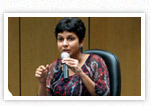 Three women directors of Facebook, Kelly Graziadei, who looks after Brand Agency Strategy and Account Management in Bay Area, California, Kirthiga Reddy, Director of Online Operations and Head of Office in India, and Gail Power, Director of Online Sales and Operations in Europe, were at the ISB to talk about social networking and share their personal experiences on managing personal and professional priorities.
Three women directors of Facebook, Kelly Graziadei, who looks after Brand Agency Strategy and Account Management in Bay Area, California, Kirthiga Reddy, Director of Online Operations and Head of Office in India, and Gail Power, Director of Online Sales and Operations in Europe, were at the ISB to talk about social networking and share their personal experiences on managing personal and professional priorities.
On the phenomena that women tend to underestimate their abilities, Reddy pointed, “If you think that you don’t have what it takes to apply for a particular position, know that there are men, who may be even less-qualified but who are going out there and making a pitch for themselves.”
Participate in Political Processes: Kanan Dhru
 A mix of passion and intelligence – that’s Kanan Dhru, Founder and Managing Director, Research Foundation for Governance in India (RFIG). She was at the ISB to talk to students about her organisation, and to enthuse them about participating in India’s political and legal arena.
A mix of passion and intelligence – that’s Kanan Dhru, Founder and Managing Director, Research Foundation for Governance in India (RFIG). She was at the ISB to talk to students about her organisation, and to enthuse them about participating in India’s political and legal arena.
As a practicing attorney, Dhru saw the deep pitfalls in the country’s legal system. “The poor people were in atrocious situations. I saw that there were landless farmers literally waiting on the corridors of courts for twenty, twenty-five years..,” she lamented.
Borne out of this frustration, in just two years, RFIG has had about 100 interns from over 15 countries and is all set to spread its wings further. Besides focusing on awareness, research and consultancy work in governance and law, Dhru and her team work on taking these topics to young people in a fun and engaging manner.
Portrait of an Author: Amish Tripathi
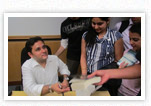 “My first attempt at writing was a complete disaster,” recounted Amish Tripathi, author of “The Immortals of Meluha.” Coming from a business background, he had initially used the same sense of control to write his books as was required of him in the corporate world. However, this approach backfired. He shared with students his wife’s advice, “Don’t approach the book with the arrogance of a creator. Approach it with the humility of a witness.”
“My first attempt at writing was a complete disaster,” recounted Amish Tripathi, author of “The Immortals of Meluha.” Coming from a business background, he had initially used the same sense of control to write his books as was required of him in the corporate world. However, this approach backfired. He shared with students his wife’s advice, “Don’t approach the book with the arrogance of a creator. Approach it with the humility of a witness.”
In his works, Tripathi traces the adventures of a Tibetan immigrant called Shiva as he travels down from Tibet to Meluha, better known as the Indus Valley civilisation. In his story-telling, Tripathi weaves in his own interpretations of the philosophies of Lord Shiva.
The Impact of the Financial Crisis: A Panel Discussion
 “What is a bigger threat to the Indian economy – domestic conditions like high inflation, fiscal mismanagement, crony capitalism, corruption or the global economic slowdown?” was one of the questions posed by Mudit Kapoor, Assistant Professor of Economics and Public Policy at the Indian School of Business (ISB), to panelists at the discussion on “Global Financial Situation and its Impact on India.” This panel discussion was the highlight of ISB’s 10th anniversary event in Mumbai.
“What is a bigger threat to the Indian economy – domestic conditions like high inflation, fiscal mismanagement, crony capitalism, corruption or the global economic slowdown?” was one of the questions posed by Mudit Kapoor, Assistant Professor of Economics and Public Policy at the Indian School of Business (ISB), to panelists at the discussion on “Global Financial Situation and its Impact on India.” This panel discussion was the highlight of ISB’s 10th anniversary event in Mumbai.
The panelists were Sanjay Nayar, CEO and Country Head, Kohlberg Kravis Roberts & Co (KKR) in India, and N S Kannan, Executive Director and Chief Financial Officer, ICICI Bank.
The Lok Pal Bill: A debate
 The atmosphere was politically charged. Student-professor teams debated, and argued the motion “The Lok Pal Bill – Will it Reduce Corruption in time?”
The atmosphere was politically charged. Student-professor teams debated, and argued the motion “The Lok Pal Bill – Will it Reduce Corruption in time?”From lamenting the lack of incentives for public-sector employees to admitting that it is fiscally impossible to remunerate them Singapore-style; from criticising the lack of a pro-democratic mechanism of change to admiring one man’s stamina to fight the status quo – the debate undressed the many facets at the core of politics in India.
The debate forced the community to ponder over the issue that is adding a new chapter to the books on civil society movements.
To Lead the Leader – A leadership course for MLAs
 How can we provide good governance and make our state one of the ideal states in the country? These are some of the questions in the minds of many MLAs. To equip them with effective tools for policy-making and implementation, ISB conducted an on-campus “India Leadership Workshop” from September 4-7, 2011.
How can we provide good governance and make our state one of the ideal states in the country? These are some of the questions in the minds of many MLAs. To equip them with effective tools for policy-making and implementation, ISB conducted an on-campus “India Leadership Workshop” from September 4-7, 2011.
Through this programme, the legislators learnt about effective management techniques such as time management and resource optimisation so that they could realise their goals.
“We had interactions with MLAs from different parties and states. Through this, we learnt how they function and also got to know one another in a better manner,” said Kaul Singh Thakur, MLA of a constituency in Drang, Himachal Pradesh.
Transforming Healthcare: A Call for Business Graduates
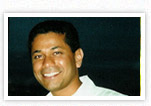 “I don’t find a lot of Indians wanting to go into the social side of things, from business schools. I think there are opportunities to use your business skills and really make a transformative impact in the world. It is always the interdisciplinary types of work that really make an impact – applying business skills to social problems in this particular case,” was Inder Singh’s closing statement to students. As the Executive Vice President of Access Programs at the Clinton Health Access Foundation (CHAI), Singh talked about various aspects of the pharmaceutical business, through interactive case studies. He also shared his experience working on programmes to increase the access of HIV, malaria and TB drugs to the developing countries.
“I don’t find a lot of Indians wanting to go into the social side of things, from business schools. I think there are opportunities to use your business skills and really make a transformative impact in the world. It is always the interdisciplinary types of work that really make an impact – applying business skills to social problems in this particular case,” was Inder Singh’s closing statement to students. As the Executive Vice President of Access Programs at the Clinton Health Access Foundation (CHAI), Singh talked about various aspects of the pharmaceutical business, through interactive case studies. He also shared his experience working on programmes to increase the access of HIV, malaria and TB drugs to the developing countries.
Professor Abhijeet Vadera’s Paper Gets Published 
 Employees who strongly disidentify with their organisation or, hate their organisation will commit crimes against it while those who identify with or love their organisation would commit crimes for it. This was one of the arguments proposed by Professor Abhijeet Vadera and his colleague, Professor Michael Pratt, in their paper entitled “Love, fate, ambivalence, or indifference? A conceptual examination of workplace crimes and organizational identification,” which was recently accepted for publication in the top-tier journal “Organizational Science.”
Employees who strongly disidentify with their organisation or, hate their organisation will commit crimes against it while those who identify with or love their organisation would commit crimes for it. This was one of the arguments proposed by Professor Abhijeet Vadera and his colleague, Professor Michael Pratt, in their paper entitled “Love, fate, ambivalence, or indifference? A conceptual examination of workplace crimes and organizational identification,” which was recently accepted for publication in the top-tier journal “Organizational Science.”
What are the changing rules of Marketing? ikshaa 2011 brings to light.
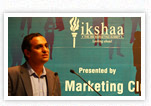 Historically, companies only engaged in one-way communication with their customers. If the consumers liked what they heard and saw value in a product, they purchased the brand. However, the same does not hold true at present. Consumers now, are vocal about their opinions – whether good or bad. This was amongst the ideas that emerged at a panel discussion during “ikshaa 2011,” ISB’s annual marketing conclave. The theme this year was the “Changing Rules of Marketing.” According to Piyush Jain, General Manager, Unilever, “As companies, you need to be proactive and be sure that you know about all the conversations that are happening about your brands online – and you have to be comfortable that there will be honest conversations.” He advised companies to accept these dialogues and intervene when necessary. “When there is a negative conversation that is not true, you need to step in and clarify. But I have seen companies react and be dismissive about some communication online. That is the worst strategy to take,” he added.
Historically, companies only engaged in one-way communication with their customers. If the consumers liked what they heard and saw value in a product, they purchased the brand. However, the same does not hold true at present. Consumers now, are vocal about their opinions – whether good or bad. This was amongst the ideas that emerged at a panel discussion during “ikshaa 2011,” ISB’s annual marketing conclave. The theme this year was the “Changing Rules of Marketing.” According to Piyush Jain, General Manager, Unilever, “As companies, you need to be proactive and be sure that you know about all the conversations that are happening about your brands online – and you have to be comfortable that there will be honest conversations.” He advised companies to accept these dialogues and intervene when necessary. “When there is a negative conversation that is not true, you need to step in and clarify. But I have seen companies react and be dismissive about some communication online. That is the worst strategy to take,” he added.Launch of ISB’s "Virtual Stock Market Simulation" Platform
 “V-invest,” the ISB community’s very own “Virtual Stock Market Simulation Platform” was launched recently by Vikram Kuriyan, the Executive Director for the Centre of Investment. This pioneer initiative by the Finance Club of the Class of 2012, will allow participants to practice global investing on a real time basis. Through a virtual portfolio, participants will be able to invest in equities across all key global markets. The trading platform will be provided by www.stocktrak.com, a global dedicated stock market simulation site, which currently caters to about 80% of US business schools. At the launch event, Kuriyan talked about the Warren Buffet-style of investing to the packed audience of students. Warren Buffet chose businesses that not only had a durable competitive advantage but also a predictable business model. Therefore, he refrained from investing in high-tech companies or companies always under the competitive pressure.
“V-invest,” the ISB community’s very own “Virtual Stock Market Simulation Platform” was launched recently by Vikram Kuriyan, the Executive Director for the Centre of Investment. This pioneer initiative by the Finance Club of the Class of 2012, will allow participants to practice global investing on a real time basis. Through a virtual portfolio, participants will be able to invest in equities across all key global markets. The trading platform will be provided by www.stocktrak.com, a global dedicated stock market simulation site, which currently caters to about 80% of US business schools. At the launch event, Kuriyan talked about the Warren Buffet-style of investing to the packed audience of students. Warren Buffet chose businesses that not only had a durable competitive advantage but also a predictable business model. Therefore, he refrained from investing in high-tech companies or companies always under the competitive pressure.Healthcare Hurdles – A talk by Professor A K Shiv Kumar
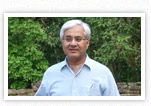 “In 2004, 28% of ailments in rural areas and 20% in urban areas went untreated due to financial reasons,” said Professor A K Shiv Kumar in his address to students on India’s healthcare challenges and her path towards universal healthcare. He added that when there is a cash-crunch in families, it is unfortunately, the women, who take the burden of this and refuse to see a doctor. This problem is exacerbated by a lack of female doctors, especially since many women are uncomfortable getting themselves examined by male doctors. Besides proposing an increase in public spending on primary healthcare, he stressed the importance of complementary investments in areas including education and women’s empowerment. “Positive outcomes in health, are not determined by investments in health alone,” he explained.
“In 2004, 28% of ailments in rural areas and 20% in urban areas went untreated due to financial reasons,” said Professor A K Shiv Kumar in his address to students on India’s healthcare challenges and her path towards universal healthcare. He added that when there is a cash-crunch in families, it is unfortunately, the women, who take the burden of this and refuse to see a doctor. This problem is exacerbated by a lack of female doctors, especially since many women are uncomfortable getting themselves examined by male doctors. Besides proposing an increase in public spending on primary healthcare, he stressed the importance of complementary investments in areas including education and women’s empowerment. “Positive outcomes in health, are not determined by investments in health alone,” he explained.Team ISB Declared “National Champions” at a Management Competition 
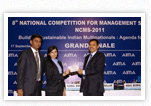 The Indian School of Business (ISB) team, comprising of Santosh Mohanram and Bhavna Anand, emerged as “National Champions” at the 8th National Competition for Management Students (NCMS) 2011. The competition, organised by the All India Management Association (AIMA), provides management students a platform to hone their knowledge and test their business acumen. The theme this year was “Building Sustainable Indian Multinationals – Agenda for Action.”
The Indian School of Business (ISB) team, comprising of Santosh Mohanram and Bhavna Anand, emerged as “National Champions” at the 8th National Competition for Management Students (NCMS) 2011. The competition, organised by the All India Management Association (AIMA), provides management students a platform to hone their knowledge and test their business acumen. The theme this year was “Building Sustainable Indian Multinationals – Agenda for Action.”
The Impact of the Financial Crisis: A Panel Discussion
Healthcare Hurdles – A talk by Professor A K Shiv Kumar
Professor Abhijeet Vadera’s Paper Gets Published
To Lead the Leader – A leadership course for MLAs
Transforming Healthcare: A Call for Business Graduates
What are the changing rules of Marketing? ikshaa 2011 brings to light.
Launch of ISB’s "Virtual Stock Market Simulation" Platform
Team ISB Declared “National Champions” at a Management Competition
Women Can Rule – Facebook directors address ISB